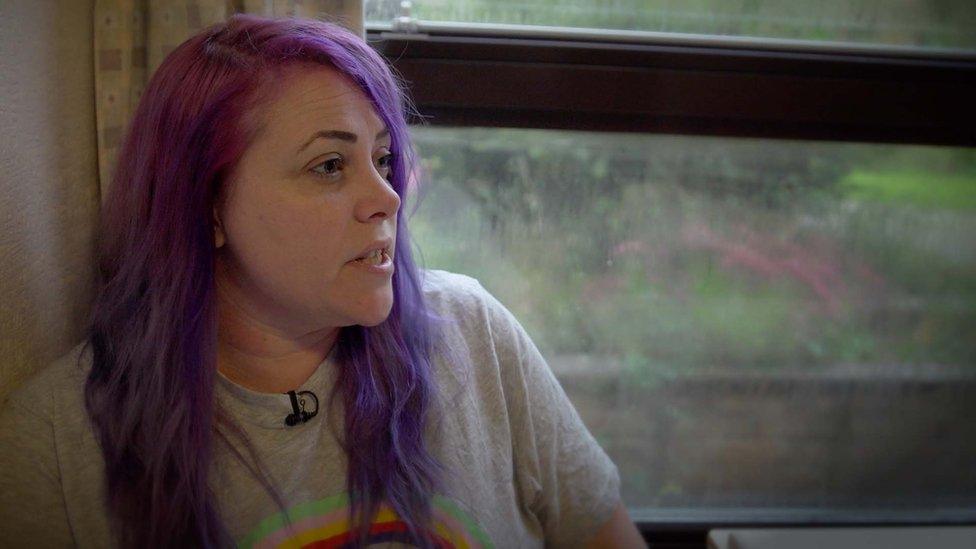Endometriosis inquiry underlines NI waiting times
- Published
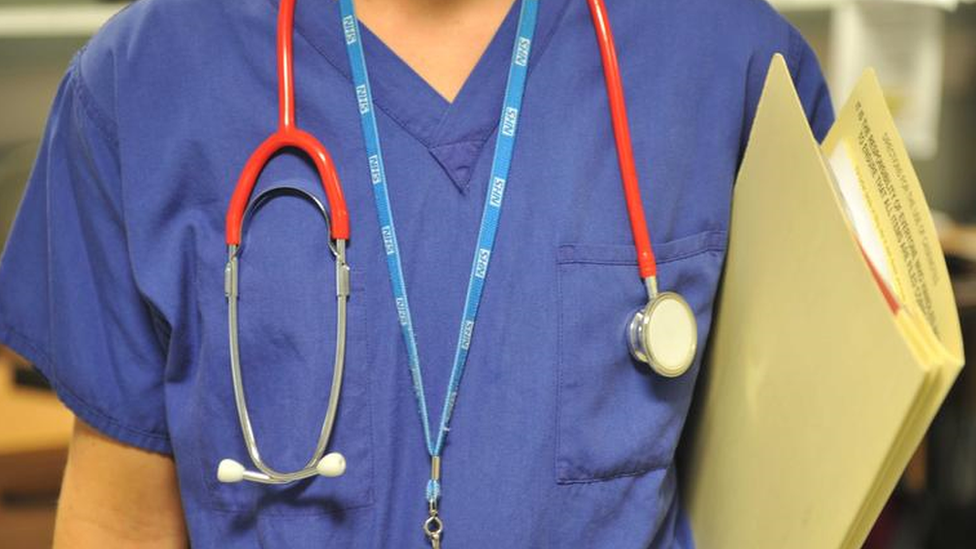
More than 23,500 patients are waiting for an appointment with a consultant gynaecologist in Northern Ireland, the BBC can reveal.
The number waiting for a laparoscopy procedure, often used to treat endometriosis, has more than doubled to 1,236 since March last year.
An All-Party Parliamentary Group (APPG) found no improvement in the diagnosis of the condition in a decade.
The APPG inquiry received 10,000 responses from across the UK.
Robyn Acheson, 31, from County Down has had seven surgeries for endometriosis and lives with chronic pain.
"From my very first period when I was 12 until now, I live daily with chronic pelvic pain," she told BBC News NI.
She said it took 11 years for her to be diagnosed and was told it "was all in my head".
"I have now had seven surgeries for endometriosis but it's left me with permanent damage to my bladder, bowels, ligaments and my muscles and my general health for living so long with such a high level of pain," she said.
Most said endometriosis had negatively impacted their wellbeing and mental health.
'Postcode lottery'
The survey, which was carried out before the Covid-19 pandemic and lockdown, also found that 58% of the respondents had visited their GP more than 10 times and 14% had gone over 15 times before getting a diagnosis.
Sir David Amess MP, chair of the APPG on endometriosis, said all those in government "must take the recommendations in this report seriously".
"It is not acceptable that endometriosis and its potentially debilitating and damaging symptoms are often ignored or not taken seriously - or downplayed," he said.
In Northern Ireland it takes an average of eight and a half years to get diagnosed - the UK average is eight years, according to the MPs' report.
The charity Endometriosis UK said the "postcode lottery" for specialist treatment had to end.
Emma Cox, the charity's chief executive, said: "Implementing effective processes within the NHS will help healthcare practitioners support diagnosis and get those with endometriosis symptoms to the right place, in hospitals with the right expertise, at the right time."
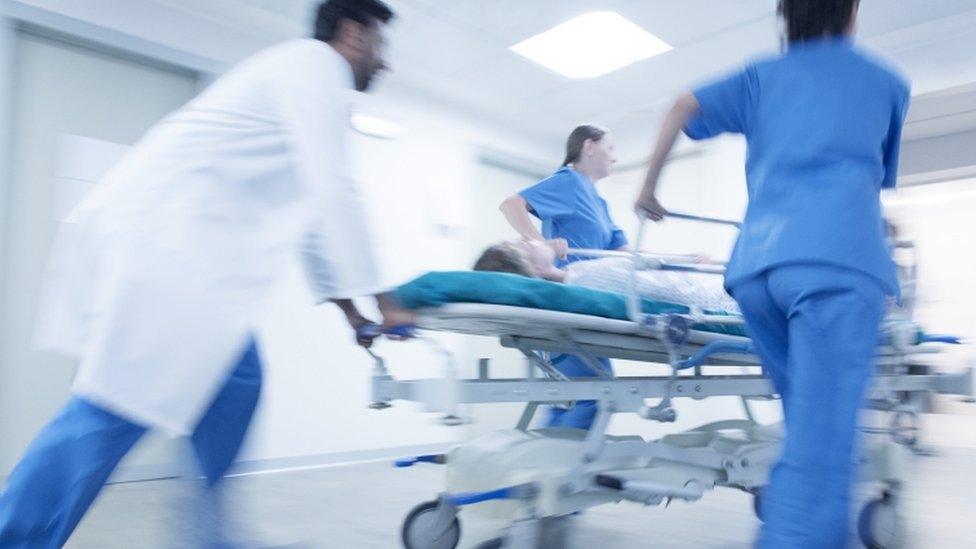
Patients often need a procedure called a laparoscopy, or keyhole surgery, in which an incision is made in the abdomen and pelvis.
In 2010, there were 221 patients waiting for a laparoscopy. By last March there were 606 people waiting and at present there are 1,236 on the list for the gynae-related procedure.
The Health and Social Care Board (HSCB) said the average waiting time is 69 weeks - but the longest is 311 weeks.
The target time is nine weeks for an assessment and 13 weeks for an inpatient or day case treatment.
An HSCB spokesperson said: "It is regrettable that some patients have to wait longer than they should for assessment or treatment at a gynaecology clinic.
"This is unacceptable and we would apologise to them for this."
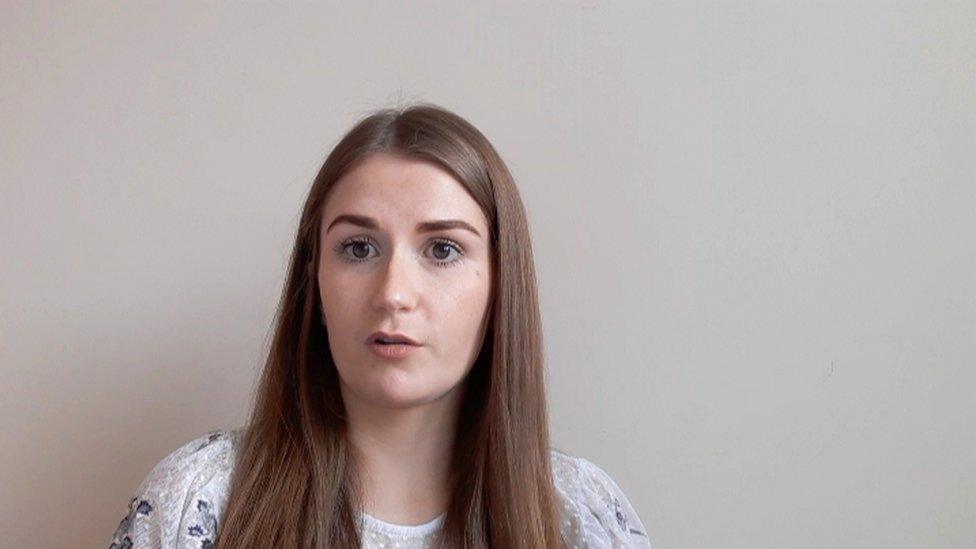
Shannon Kehoe says endometriosis affected her "physically and mentally"
Most women with endometriosis in Northern Ireland are seen by non-specialists.
Shannon Kehoe, 23, has already had two surgeries and is currently saving to travel to England for specialist treatment.
She said endometriosis affected her "physically and mentally" and she spent a lot of time wondering how much pain she would be in on a given day.
"Wondering how you are going to get through the day. I have days where I feel like I just can't keep going," she said.
"You also worry about the future. What if I can't carry children? What if my fertility is affected? It's scary and so many people have these fears."
'Neglected region'
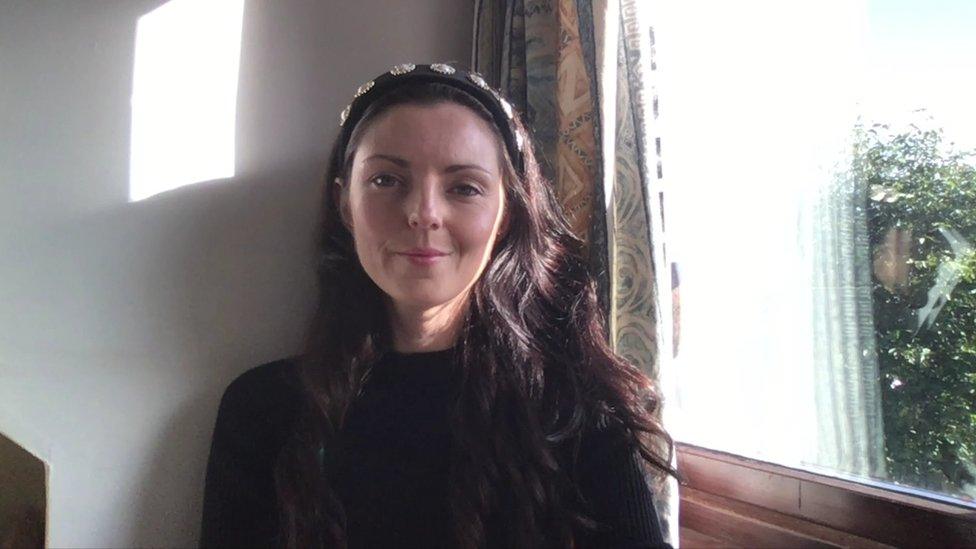
Sophie Kinloch shares her story online and engages with others who are experiencing similar problems
Campaigner Sophie Kinloch, who waited eight years for her diagnosis, said she gets messages on her Instagram advocacy account on a daily basis with women sharing their experiences.
"Many women have no choice but to travel to England or further afield at great personal expense and emotional upheaval to access actual endometriosis experts who are exceptionally well trained and perform a high volume of endometriosis surgeries, in order to get long-term pain relief, improve their fertility and get their lives back," she said.
"We sincerely hope that the APPG on endometriosis will take urgent, decisive, and compassionate action to improve the lives of endometriosis sufferers living in this neglected region of the UK."
Research by the BBC last year found that many women said endometriosis had badly affected their mental health, career opportunities, sexual relationships and education.
Most said it had also badly affected their fertility and about half said it had led to suicidal thoughts.
- Published19 October 2020

- Published7 October 2019
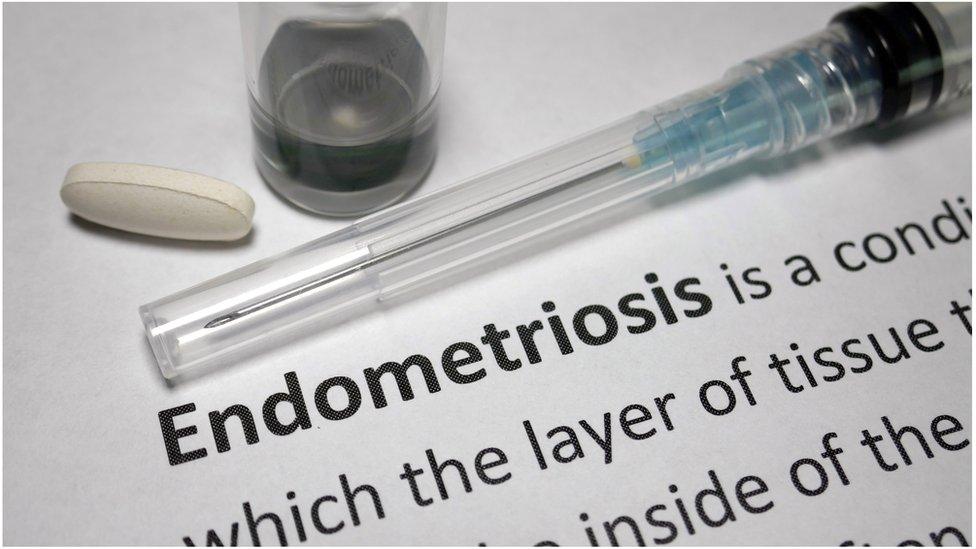
- Published6 October 2019
